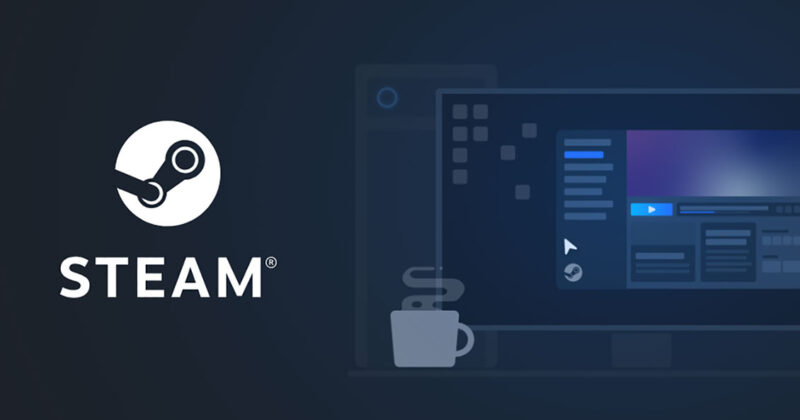Steam is a virtual distribution system for PC video games created by Valve Corporation.
Over one million games are available on the site along with downloads and “mods,” which are user-created customizations, to play.
It’s possible to access a Steam library online. Playing games bought or downloaded using Steam may be done from any computer with an Internet connection.
For Windows 10 users, Steam is the main means of accessing games. It may be downloaded from this page.
Despite the emergence of competing systems, the PlayStation remains the platform of choice for the majority of players.
Big-name games and other popular apps are a major factor in this. No matter how many fresh and exciting games you buy, many people have grumbled about how much space Steam takes up.
The great majority of gamers are affected by this problem in some fashion. In this article, we will be talking about the Steam unpacking taking so long issue.
Stick to the end of the article to see how you can fix the delayed unpacking issue with Steam.
Why does Steam unpacking take so long?
The following are some potential causes of the prolonged unpacking time experienced by Steam: The hard drive has an extremely sluggish read-write speed. There are a few bugs with the Steam client. Too many files are included in the update or installation package.
Case 1: You have a game preinstalled on your computer.
You may preload an encrypted version of the game that will be unavailable until the game’s release date if the game is not yet available.
As soon as the release date arrives, those who have purchased the game may download the decryption file, which then causes Steam to begin to “unpack” (decryption) the game contents using the Steam client.
This is the unpacking procedure that is visible to users during the Steam installation. It is true that there are certain situations in which the Steam unpacking process cannot be detected by the user
For example, when you download a game after it has been released, the unpacking process occurs simultaneously with the download process. The unpacking procedure is completely undetectable in this situation.
The downside is that if your computer’s hard drive is sluggish, even if the network is fast, Steam will remain in the unpacking stage for a short period of time after the download is complete.
Case 2. You regularly update a game.
In addition, whenever an update is packaged in a shoddy manner, the Steam unpacking problem manifests itself.
This update is just a minor tweak, but it decompresses a large file that was previously compressed.
Consequently, unpacking is slow, and users may have to require 20GB of free space in order to deploy a 200MB update on occasion.
What does the term “unpacking” Steam mean?
Unpacking is a common occurrence in the Steam world. When you preload a game, update a game, or install a game, the unpacking procedure will take place either visually or silently depending on your preferences.
However, if the hard drive’s pace is sluggish or if anything goes wrong, the Steam unpacking slow problem will manifest itself.
While Steam is a fantastic platform that allows users to buy and play dozens of games, it does have certain drawbacks that should be considered.
Preloading a game means Steam will have to unpack it on release day in order for you to have access to it.
One can expect this procedure to take quite some time, and the amount of time it requires to unpack a game might vary, rendering it difficult to predict when it will be completed.
If you’re experiencing trouble with Steam unpacking slowly, there are some things one can do to try to make it move faster without having to spend money on a solid-state hard drive (SSD).
How to speed up Steam Unpacking
PC gamers who want to expand their video game catalog make extensive use of the Steam platform.
Unfortunately, faults and difficulties may occur with practically every digital product or platform, and consumers must deal with them.
One issue that is resurfacing as a result of the large number of popular games that are being released is the delayed unpacking of games and updates.
Whenever a player has a game pre-loaded and completely installed, the unpacking process might be slow.
In addition, this may occur when a significant update is sent through for any game. There are a few options for dealing with this.
Method 1: Pause, unpack and reboot
Pausing and restarting again is sometimes all it takes to find a solution. According to several users, the platform’s unpacking of pre-installed games and updates is now much faster.
Pause the unpacking process by right-clicking on the game on Steam and selecting pause.
Once you’ve restarted the software, you may notice that the unpacking process moves more quickly.
Method 2: Set the priority of the Steam app to high
If you want to run numerous apps at the same time, this is a good option. Steam’s priority may be set to high, causing your system to devote more resources to performing Steam’s activities.
Go over to the Details tab in the Task Manager after you’ve opened it. Simply right-click on the exe process to shut it off.
Hover your mouse over the “Set priority” option to see what’s going on. You’ll see a side menu emerge, and you may choose High from there.
Method 3: Create some more space in Storage
If you don’t have enough memory on your computer, unpacking on Steam might take a long time.
Make sure the drive where the software is installed has adequate free space. This will make it easier for it to extract any files.
You are free to remove any files that you no longer need. Go through and remove any files or applications you no longer need to speed up the process of unpacking.
Method 4: Clearing the depotcache folder’s temporary data.
Depotcache is a folder you may not have heard of before. Steam uses the data in this subdirectory for a single usage only.
Even though these files are normally tiny, the space they take up might pile up and slow down any procedures, like unpacking, if you have a growing library of games.
Closing Steam will prevent you from accessing the depotcache folder and deleting anything inside. Go to the depotcache folder once you’ve done that.
Depending on where you installed Steam, it may be at a different position from person to person.
This is where most people will find it: Steam Depot Cache may be found under C: Program Files (x86).
The whole of the depotcache folder should now be deleted. You’ll find them in your recycle bin, and you’ll have to indicate that you wish to get rid of them.
Method 5: Carry out Disk fragmentation of your hard drive (HDD)
If your computer is operating slowly, it’s possible that your HDD is filling up with all the data you create on a regular basis and taking up valuable storage space.
Defragmenting may improve the speed of your computer and the speed at which it performs all of its tasks.
To defrag an HDD, enter “defrag” into your computer’s search box. “Defragment and Optimize Drives” is the option that you should choose. Your drives will be listed in a drop-down menu. Take advantage of Optimize to defragment your hard disk.
Method 6: Look for errors on the hard drive
To address file system errors and logical bad sectors, you may use the built-in Windows Error Checking program. To help you with error checking, below is a guide:
-
Step 1: Launch the File Explorer application.
-
Step 2: Go over to the Properties tab
Select Properties from the context menu of the drive on which Steam is installed by right-clicking the drive.
-
Step 3: In the Tools tab, choose the option to “Check”
Method 7: Consider upgrading to SSD
Steam unpacking may be sped considerably if you upgrade your HDD to an SSD. However, this may be the most effective but also the costliest option.
With both an SSD and HDD on your PC, Steam unpacking performance depends on the HDD, even if you have both installed. Moving Steam games on an SSD is a good idea in this situation.
Users may need to use a hard drive clone application to move all of their data or only the operating system from their HDD to the new SSD.
Follow us on Twitter & like our Facebook page for more post-updates.

Abhigyan identifies himself as a tech geek, gaming cognoscenti, and also a connoisseur of music. Unidentified and mysterious phenomena never fail to gather his undivided attention. When not reading about bizarre and perplexing entities across the Universe, he can often be found cheering for his favorite teams in Football.

